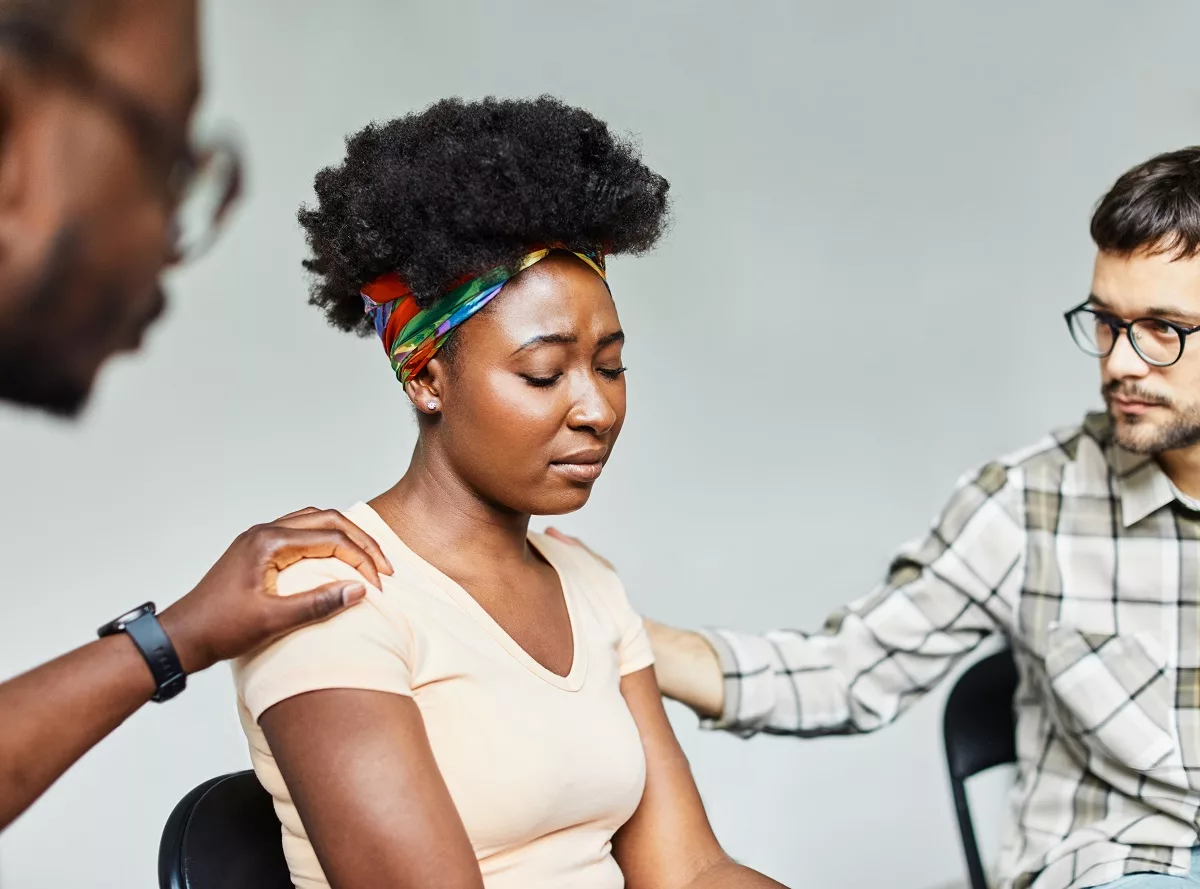A type of post-traumatic stress disorder (PTSD) that affects emotional, physical, and behavioral responses to rape and other forms of sexual assault is called rape trauma syndrome (RTS). In other words, this syndrome is the way your mind and body respond to any sexual act performed against your will. Commonly, people who develop this syndrome feel guilt, anxiety, fear, and depression after the trauma. The symptoms of this mental disorder often come in stages.
Moreover, people’s responses are different to this type of trauma. Some people may even feel outbursts of emotions while doing daily activities (including folding laundry or brushing their teeth). This condition also negatively affects physical and mental health. It is important to understand that it was not your fault. Generally, there are healthcare specialists who may help cope with problems after rape or sexual assault.
Rape
A form of sexual assault in which you are forced to participate in sexual acts (including anal, oral, or vaginal) against your will is called rape. While some people use physical force against you to commit rape, others use threats, violence, or manipulation to engage in sexual activity. However, all forms of rape are illegal, and you are never to blame for other people’s actions.
According to some data, more than 433,000 Americans older than 12 years old experience a form of sexual assault each year. This problem affects people of all ages and genders. For example:
- 1 in 6 women will experience at least an attempt or a completed rape in their lifetime
- 1 in 33 men will experience one or more attempted or completed rape in their lifetime
- About 60,000 children experience sexual abuse every year
In general, it is quite difficult to determine the exact number of people with rape trauma syndrome because multiple cases of rape or sexual assault are not reported. However, about 94% of females have PTSD symptoms a few weeks after sexual trauma.
Stages of Rape Trauma Syndrome
Physicians have categorized this syndrome into 3 types. Each type causes different symptoms and may vary in severity among individuals. Healthcare providers have classified the stages of this syndrome according to the symptoms people experience after sexual assault. These include:
- Acute (immediate) phase – It occurs when you experience trauma and when trying to understand what is happening. This stage often looks like a physical and mental fog. The most common symptoms of this phase include mood swings, anxiety, and confusion that often interfere with the ability to perform daily routine.
- The underground phase – This stage occurs when you are trying to move on from the trauma and get back to your life. Usually, people with this stage try to block out the memory and refuse to acknowledge that it happened. While this stage can last a few months, in some cases, it may last up to several years.
- Reorganization or resolution phase – In such cases, the affected person tries to recognize the trauma and take steps to adapt. Therefore, people move from a victim to a survivor during this phase. Moreover, they face their trauma and confront triggers that are usually overwhelming and stressful.
Symptoms
Usually, people with rape trauma syndrome experience the following symptoms. For example:
- Flashbacks
- Mood swings
- Nightmares
- Sleep disturbances (insomnia)
- Problems with focusing or concentrating
- Depression
- Confusion
- Disorientation
- Anxiety
However, people with this syndrome may also experience physical symptoms. Moreover, those who develop this condition often experience different symptoms. Check below some examples:
- Dizziness
- Chronic pain
- Headaches
- Appetite changes
- Sexual dysfunction
- Muscle stiffness
- Gastrointestinal problems
- Fainting
If you notice any of the previous symptoms, do not hesitate to visit a healthcare professional.
Causes
This type of PTSD occurs when you experience sexual trauma. Commonly, it includes any sexual act or behavior that you do not consent to. For example:
- Attempted rape
- Rape
- Forced sexual touching or contact, or acts of sex
In addition, sexual assaults can occur to anyone by anyone, but you should know that sex is not a right or something that you owe to someone else.
What Are The Potential Complications of Rape Trauma Syndrome?
People who develop this syndrome may experience serious complications, especially if they do not seek help. Check below some examples:
- Substance use disorder
- Thoughts or even attempts at suicide
- Self-harm
If you or a loved one has suicidal thoughts, immediately call or text 988 in the U.S. It is the Suicide and Crisis Lifeline that can help people 24/7.
Additionally, sexual assaults can happen to anyone, even from a spouse or friend. That’s why there is no sure way to prevent this disorder.
Diagnosis
If you have experienced sexual assault and have symptoms similar to PTSD, you may be referred to a psychologist or psychiatrist. These are healthcare professionals specialized in mental health disorders (such as rape trauma syndrome and others). Physicians usually begin the diagnosis with a physical examination to check for abnormalities linked to the disease. They may also ask some questions about the severity and frequency of the symptoms. However, it is very important to be honest and open during diagnosis because doctors will not judge or blame you.
Once you have been raped or sexually assaulted, it is advised to call 911 or go to the nearest emergency room (ER). It is also possible to call the National Sexual Assault Hotline. You should seek medical care to reduce the symptoms and prevent life-threatening complications. At a hospital, physicians often perform the following tests and examinations. Examples include:
- Document the injuries
- Check and treat physical trauma
- Pelvic examination to check the genitals
- Collect scrapings from underneath the fingernails, anal and vaginal secretions, saliva, blood, hair from the head and genitals, and others.
- Blood tests to check for infections (such as sexually transmitted infections)
- Urine tests (also called urinalysis) to check for date-rape drugs
In most cases, examinations after sexual assault are very uncomfortable. Moreover, you will be asked a lot of questions that may make you feel unwell. If you do not understand what happens, you can talk with your doctor about the examinations and tests.
Treatment
Usually, this mental disorder is treated with a combination of treatments. These include:
- Psychotherapy (also known as talk therapy) – Commonly, doctors prescribe cognitive behavioral therapy or psychodynamic therapy. These therapies help ease the symptoms that occur after sexual assault or rape.
- Certain medications – These include anxiety medications, antidepressants, and others.
It is also recommended to talk with your physician to get the care your body and mind require. In such cases, it may be difficult to open up and trust other people, but a healthcare professional team may help cope with the daily routine.
Furthermore, previous treatments cannot cure rape trauma syndrome, but they help process your experiences. However, your life will be different after these traumas.
Frequently Asked Questions
What does rape trauma syndrome feel like?
In most cases, when a person experiences sexual trauma, he/she can have strong emotions. These include:
- Anger
- Fear and guilt
- Disbelief
- Degradation
- Hopelessness
- Humiliation
- Shame
- Sadness
- Shock
- Worthlessness and others
Previous feelings are frequently overwhelming and stressful. If any of them occur, you should seek medical care immediately. Otherwise, it may lead to serious and even life-threatening complications (such as suicide).
How long does rape trauma syndrome last?
This disorder often manifests and lasts differently among individuals who experience it. It is important to get medical care as soon as possible to ease the symptoms and improve your quality of life.
What is the difference between PTSD and RTS?
While people with PTSD often experience vivid and intrusive flashbacks and nightmares, those who develop RTS may have more general distressing thoughts and images. Moreover, another difference between these mental disorders is the way survivors respond to triggers. Ask your healthcare provider if you have additional questions.




